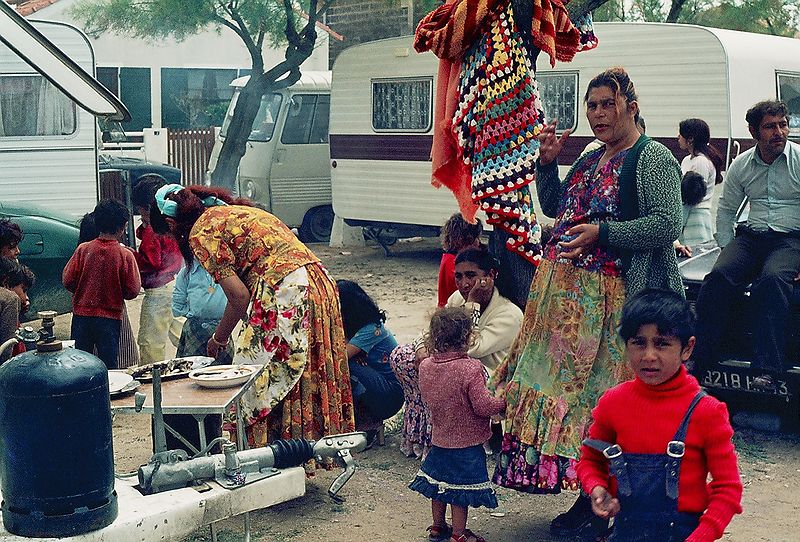
The European Union and the French government are embroiled in a dispute over recent political action that France has taken against the Roma population within its borders, which includes demolishing settlements and deporting its occupants. The Roma, or ‘Gypsies’ as they are popularly known, come from Romania and Bulgaria, and have historically been nomadic.
The persecution of the Roma, one of Europe’s poorest ethnic and most disenfranchised political minorities, is fueled by election politics and the ongoing economic crises in France and Italy. The xenophobic rhetoric inciting and surrounding the en masse deportation of the Roma marks the deplorable racial prejudices that still dominate public discourse throughout Europe today.
However, in addition to showing the social tensions that arise in times of insecurity, this issue also gives insight into the moral principles by which the European community shepherds the nations, native peoples and immigrants on the Continent.
According to E.U. Parliamentary Assembly document 12386, the rise of ‘anti-Gypsism’ in France is signaled by national security discourse which coincides with discriminatory and xenophobic rhetoric, or inflammatory and stereotype-reliant ‘hate speech.’
“Taking advantage of the financial crisis, extremist groups capitalize on fears deriving from the equation made between Roma and criminals, choosing a scapegoat that presents an easy target, and the Roma are among the most vulnerable,” the document states.
Socially moderate politicians have also resorted to using this aggressive rhetoric in an attempt to keep independent voters from voting for the alarmist, conservative factions in upcoming elections.
France’s first anti-Roma actions started in August, when French President Nicolas Sarkozy instituted measures to expel wayfarers of French nationality and illegal immigrants.
However, the enforcement of such measures has blindly targeted all Roma, instead of just the criminal element. In its defense, the French government declared that its actions were not racist, but that the Roma overstayed their welcome without arranging clear and sustainable financial support.
According to document 12386, E.U. law allows national governments to deport intransigent groups if they cannot establish a secure income within three months of arrival and therefore burden the state social welfare system. Thus, the Roma have become overt targets for both their ethnicity and poverty.
“A clear distinction must be made in political discourse between individuals who have committed crimes and entire groups of people, such as Roma or any other minority or migrant group,” warns document 12386.
Although the phrase ‘immigration debate’ comes to mind when thinking of this issue, the Roma are actually migrants since they come from European community member states. According to the European Union, the legal measures taken by the French government violate the ‘freedom of movement’ guaranteed to all members of that community.
Yet, the Roma deportation from France and the E.U.’s condemnation of it introduces a new perspective in worldwide immigration debates, and raises questions about how national or international governments ought to manage influxes of non-native peoples.
The issue of Roma expulsion in France and Italy poses a litany of moral and legal problems that assume a much wider scope. In fact, the Roma immigrant population in France is much smaller than those of people from former francophone colonies in West Africa and the Maghreb — Morroco, Tunisia, Libya and Egypt. England, Spain and France are now facing intriguing political dilemmas that result from their African and Asian presence in the 19th and 20th centuries.
Now, people who learned the French language and were exposed to the national ideals of France are seeking a place in the land of the colonial master. These people are increasingly met with extreme social animosity.
Departing their countries to improve their standards of living, immigrants from the former colonies confront economic crisis, condescension and outright racism. Unwanted in their adopted land and unable to return home for want of means, their options are scarce.
How do these concerns relate to the immigration issues of the United States? The premises of how the American government deals with a mobile or recently arrived population differ remarkably from those of Europe. Firstly, the First Amendment reserves the near-absolute right of racist speech to be made. Thus, political expression is most protected here, whereas political harmony is the priority in Europe.
Language, shared political history and a colonial legacy unite European powers with their former colonies, while American influence and political hegemony have dictated the developments of many Latin American countries for the past 120 years or so. The conclusion of the issue in France will expand international understanding of global communities and how the people in between political entities make their way through the world.
